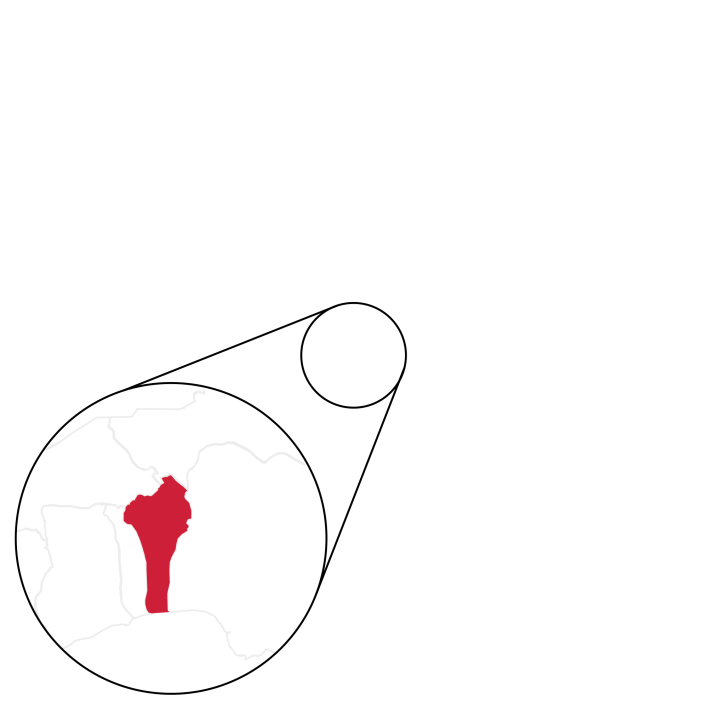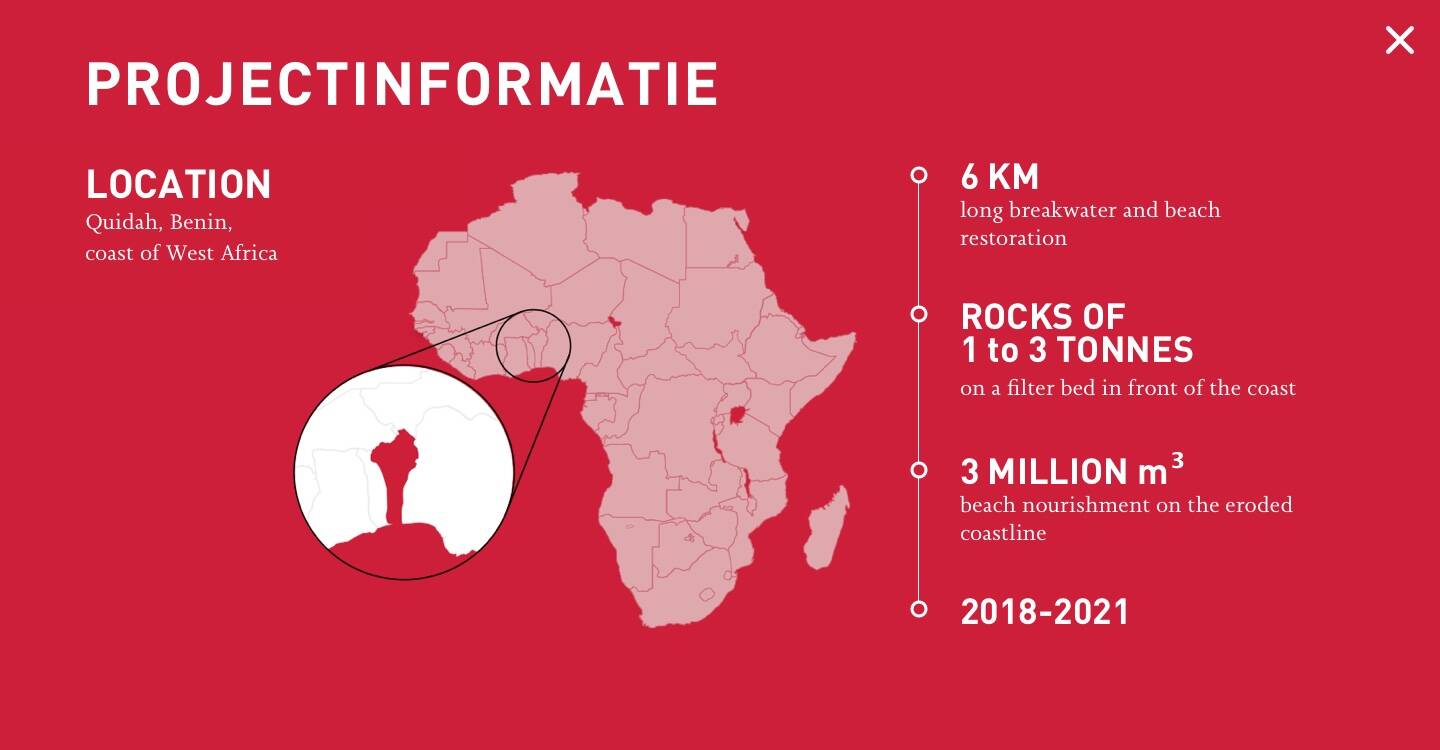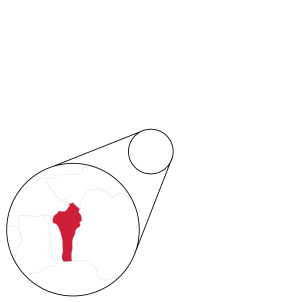PROJECT

PROJECT
INFORMATION


GO TO OUR WEBSITE
Discover our corporate social responsibility strategy
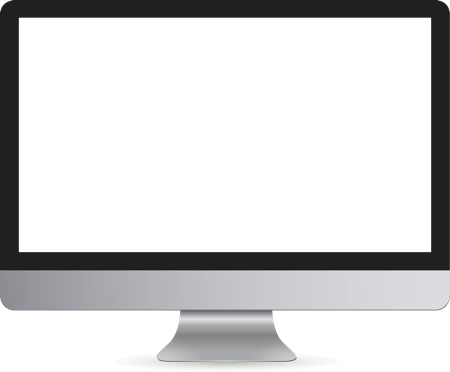
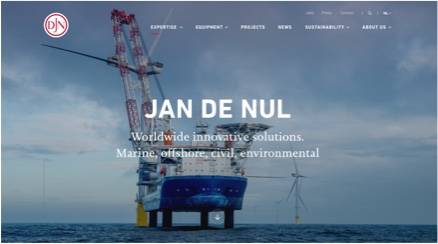
Laurens: “The breakwater not only reduces coastal erosion, it is also a place for additional diversity and a protected zone for fish and other marine organisms. On the rocks of the breakwater that had been in the water for a year, we saw a real diversity of marine life. Species that are normally rare in the region could now thrive in and around the breakwater. We saw moray eels, doctor fish, migratory fish, sea urchins, sea snails... Each has its own important role in the ecology of coral reefs. In the end, we found a clear difference in diversity and quantity of marine life in the area around the breakwater. One local fisherman even claimed that the fish in his nets were larger since the installation of the breakwater.”
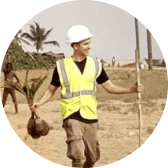
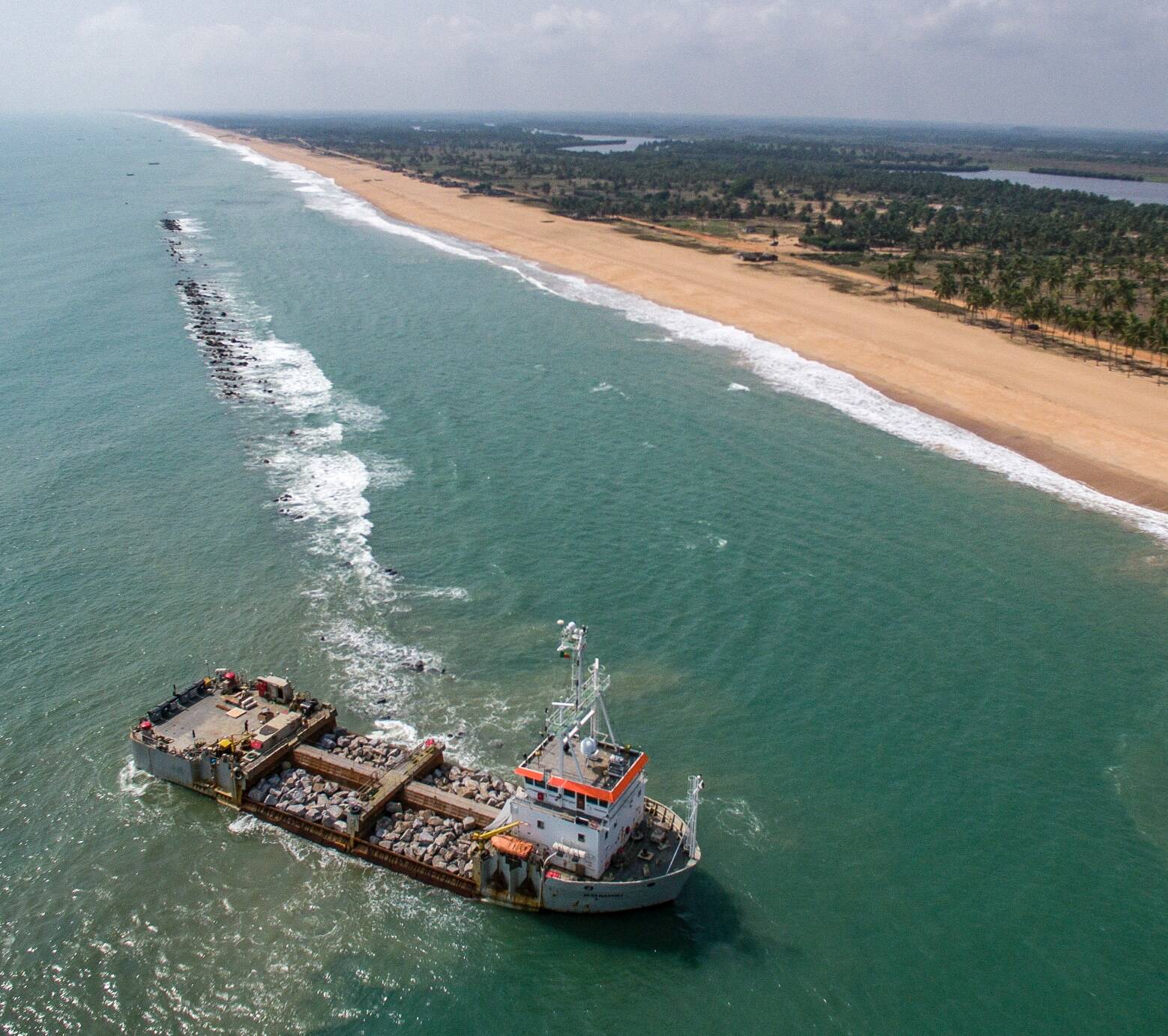
Jan: “Jan De Nul Group deploys its own personnel to efficiently put the project organization on the right track. In this setup, the local employees are an indispensable link in the chain. The cooperation and training often require cultural and human knowledge. In most cases, it is a socially enriching experience for all involved. When we arrive on a project site as a team of young and enthusiastic engineers, gaining the trust and respect of local contacts is an interesting process. Cultural differences in the perceived link between age and expertise are often a challenge to overcome. It is not always self-evident that a person in his thirties is considered an expert in his field.”
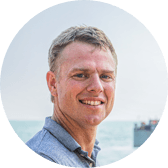
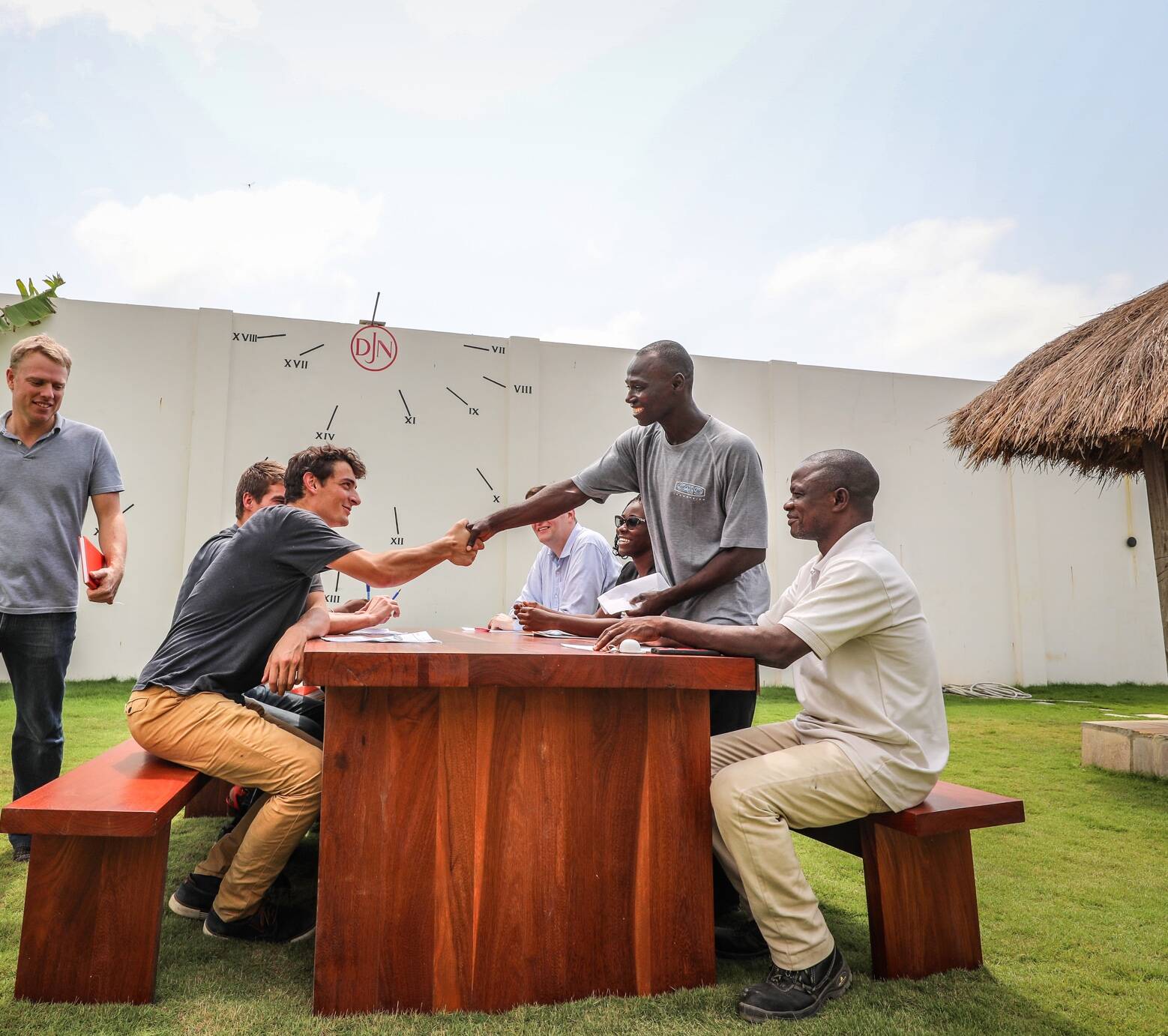
Laurens: “Climate change affects everyone. With rising sea levels and more powerful storm fronts, we see more and more beaches eroding in different parts of the world. Also in Benin, many inhabitants have been forced to relocate due to the consequences of climate change. A large part of the local population in Avlékété lives right at the beach in houses constructed of natural materials. They make a living from what the ocean brings, mainly by fishing. In our fight against coastal erosion, we also planted new palm trees. These trees prevent further erosion by wind and water of the coastal area, but they also have an economic value: they produce fruits and construction material for the coastal population. Or they can simply serve as a shady place for tourists and fishermen to relax.”

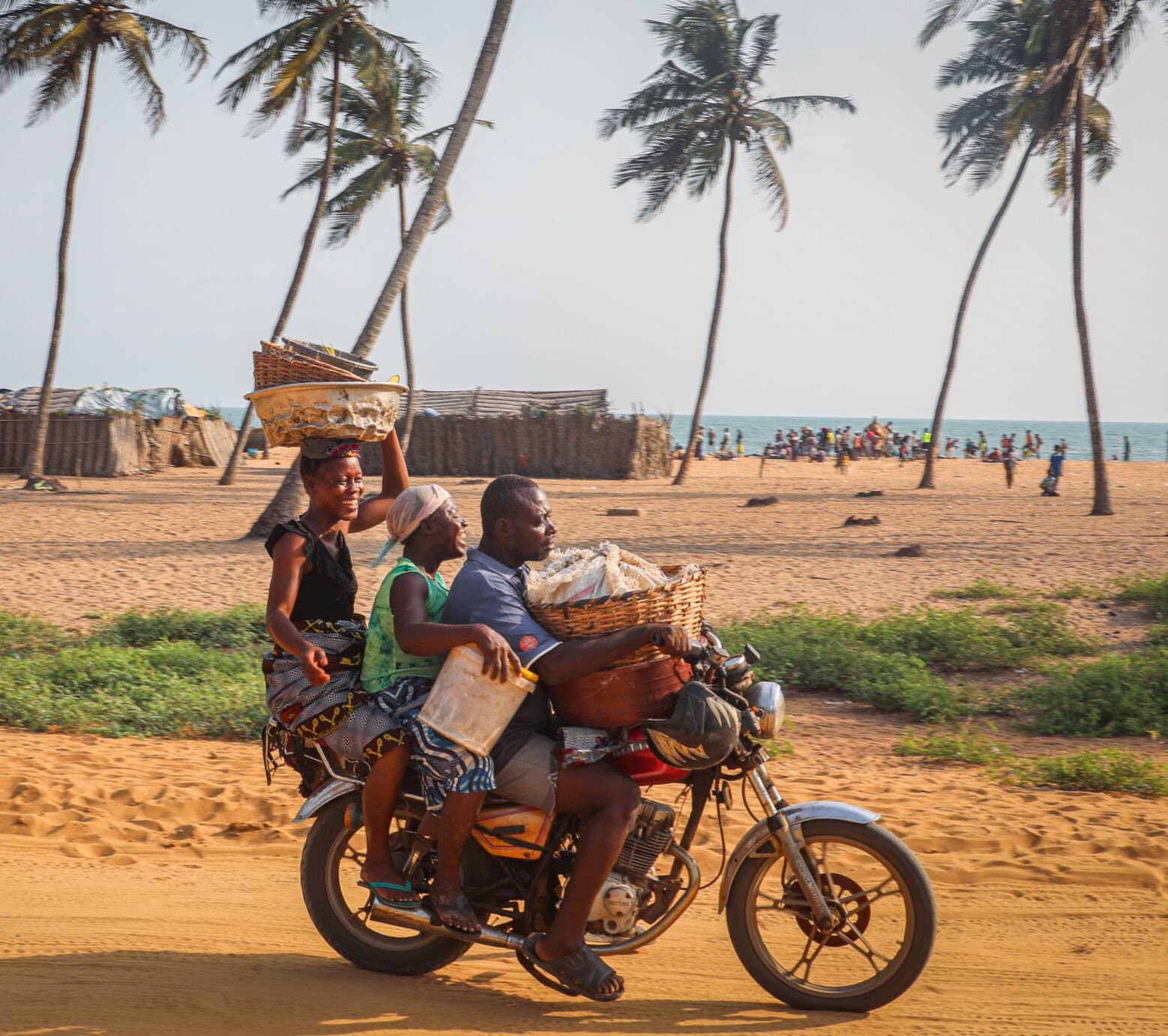
Laurens: “Our team joined forces with the local community, the local employees and the client for a beach cleanup. The message was spread by means of information sessions and some large posters along the road. More than 150 volunteers gathered and cleared no less than 48,000 m² of beach. Good for a total amount of 4.5 tonnes of waste. We used sustainable materials to collect the waste: no plastic bags or waste grippers, but wicker baskets, rakes and shovels. Afterwards, we gave these materials to the local community. They can use them to transport purchases or maintain agricultural gardens.”
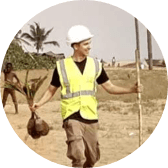
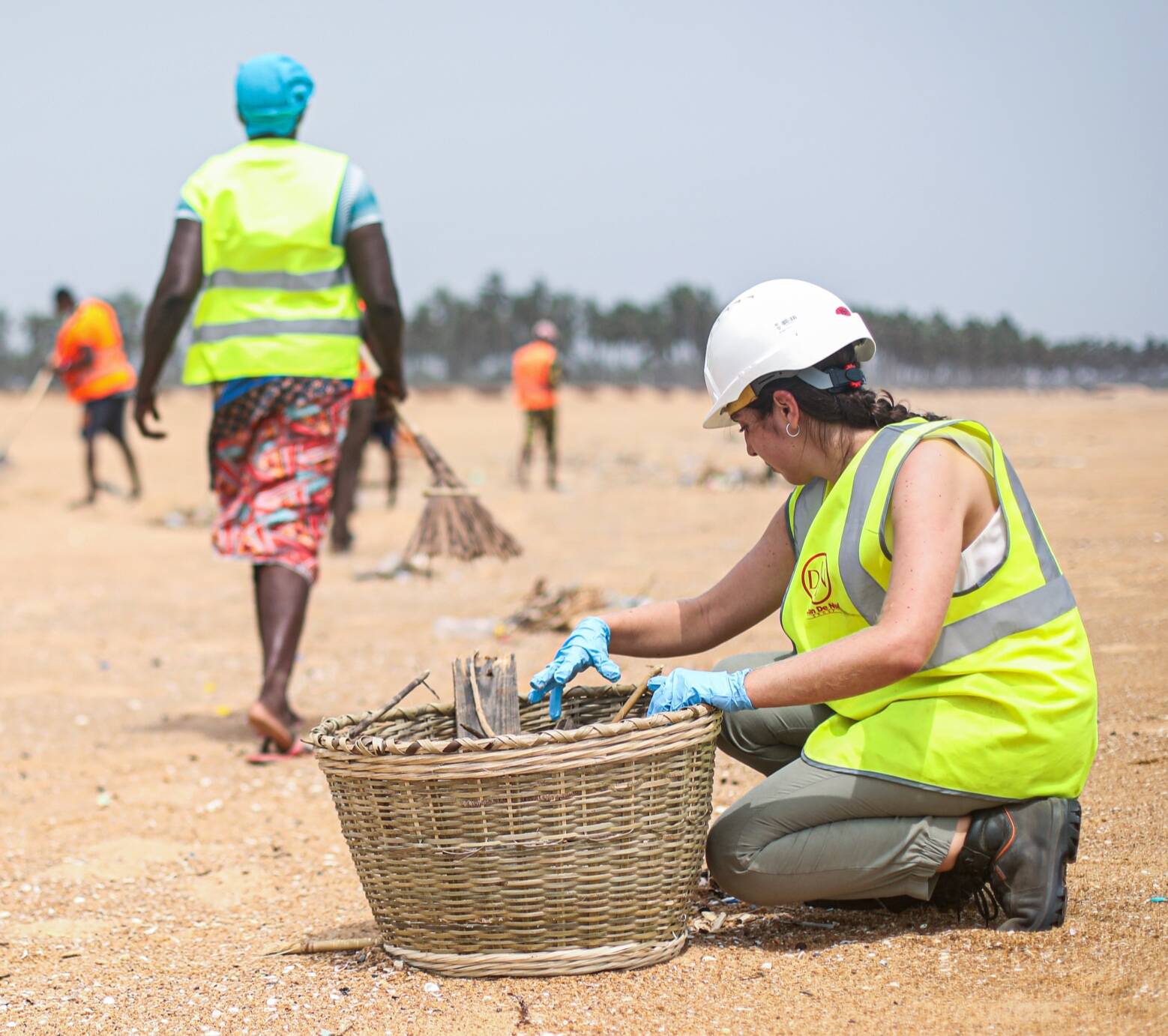
Jan: “At Jan De Nul Group, we don’t just blindly carry out a project. We also look beyond and show interest in the country and the involved community in which we are active. In the region of Ouidah we ended up in a school full of enthusiastic children and engaged teachers. We were mutually impressed with each other’s work and as we did, they enjoyed our visit. They treated us with a beautiful performance of singing and dancing of no less than two hours. Blessed!”

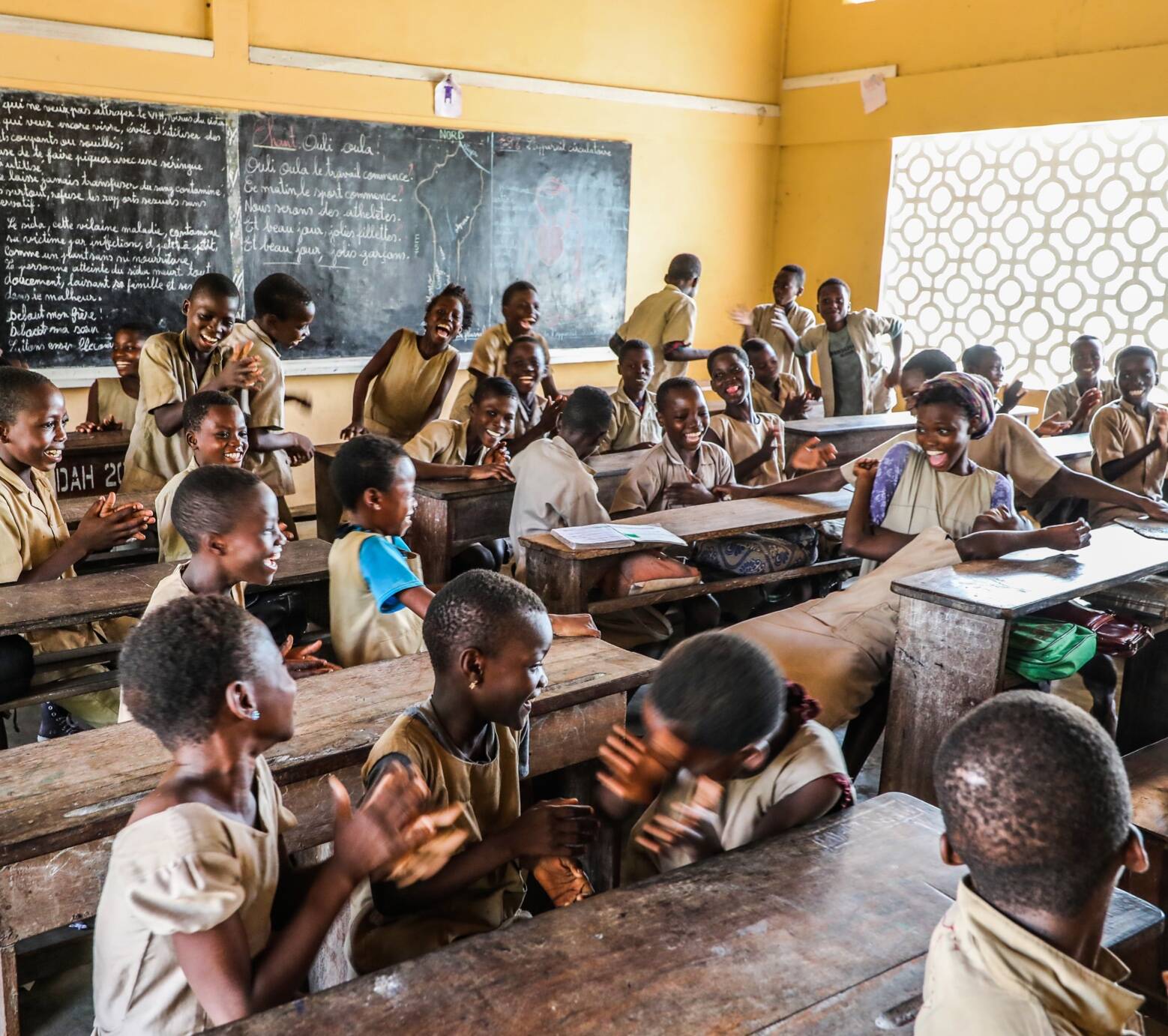
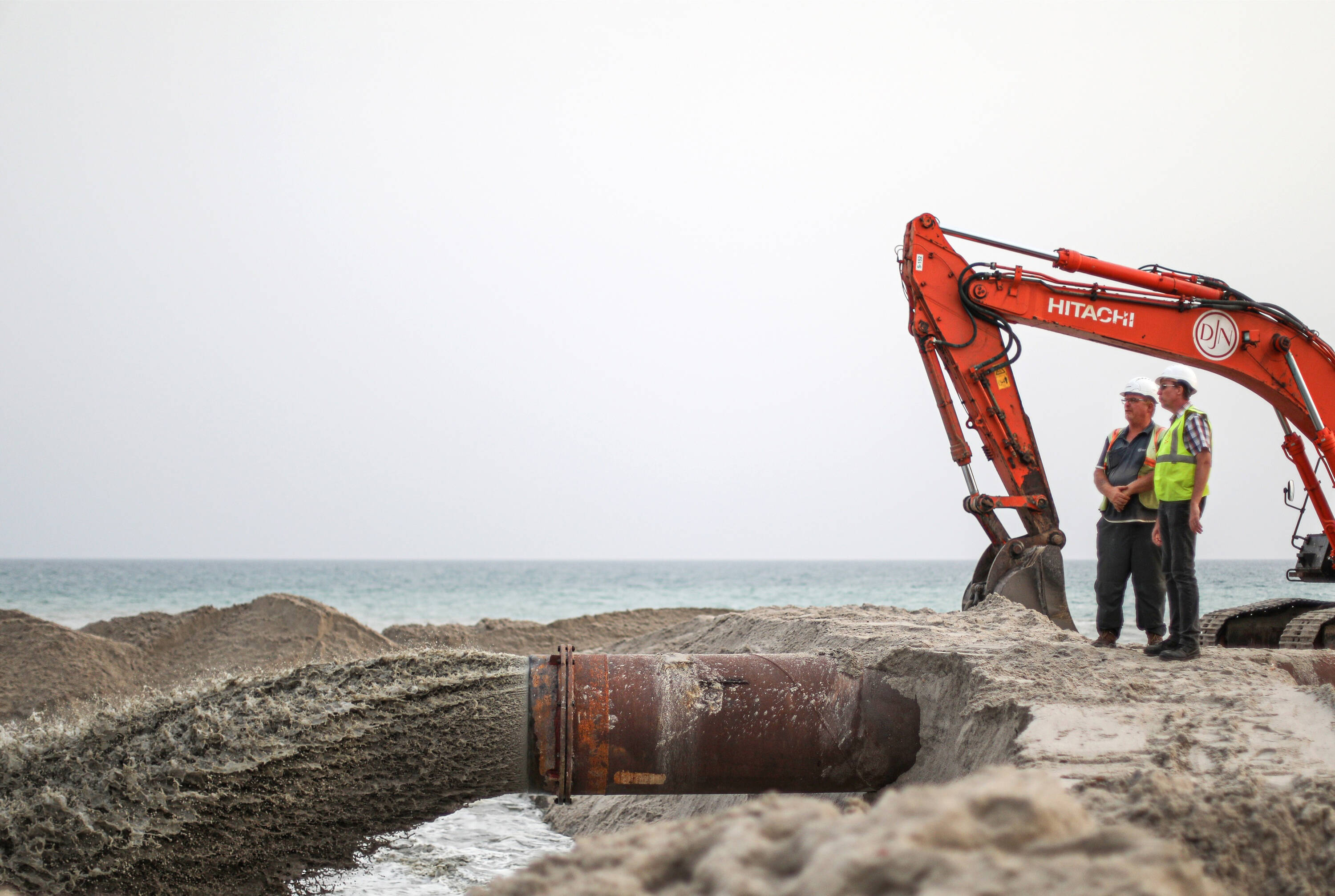
Jan Moens
(Project Manager)
i
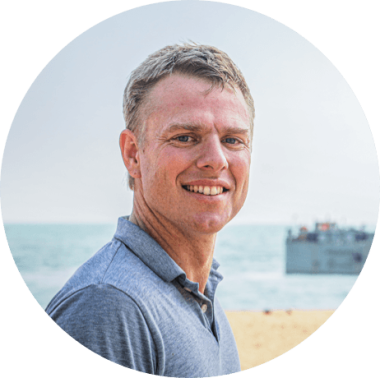
Laurens Goossens
(Environmental Engineer)
i
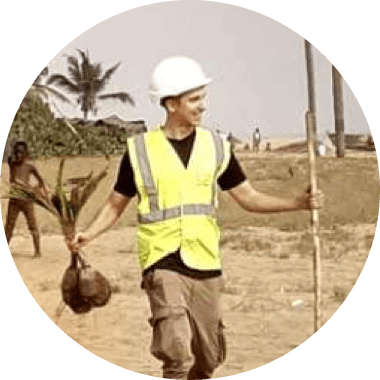
Erosion has plagued the West African coast and its communities for years. Also in Benin, waves from the Atlantic Ocean are eating away at the coastline, up to a few metres a year. To save an important part of the coast of Benin, Jan De Nul Group has developed an innovative solution and is constructing an underwater breakwater. Hand in hand with the works directly benefiting coastal communities, we are taking it much further: we are doing our part by contributing to the fundaments of the local community. Jan De Nul Group stands for honest work and sustainable business operations. To achieve that, we apply the highest corporate standards and show commitment to the local communities wherever we operate.
PROJECT
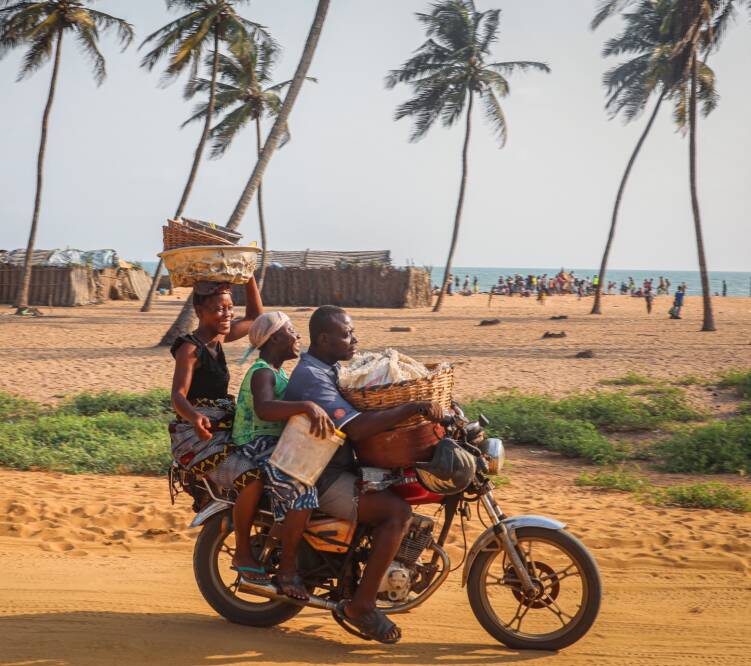
Jan Moens: “At Jan De Nul Group, we don’t just blindly carry out a project. We also look beyond and show interest in the country and the involved community in which we are active. In the region of Ouidah we ended up in a school full of enthusiastic children and engaged teachers. We were mutually impressed with each other’s work and as we did, they enjoyed our visit. They treated us with a beautiful performance of singing and dancing of no less than two hours. Blessed!”
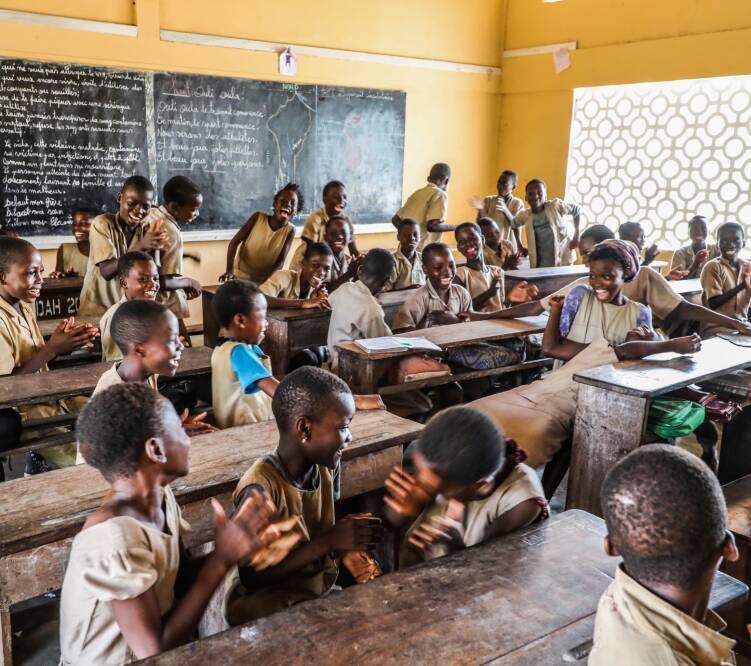
Jan Moens
(Project Manager)
i
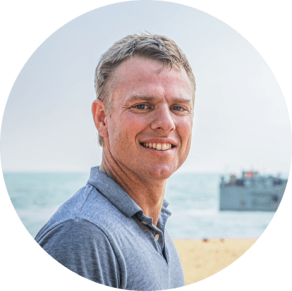
Laurens Goossens
(Environmental Engineer)
i
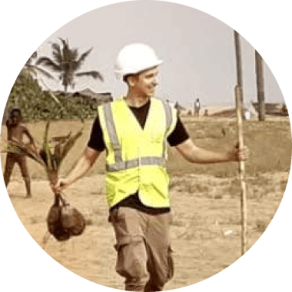

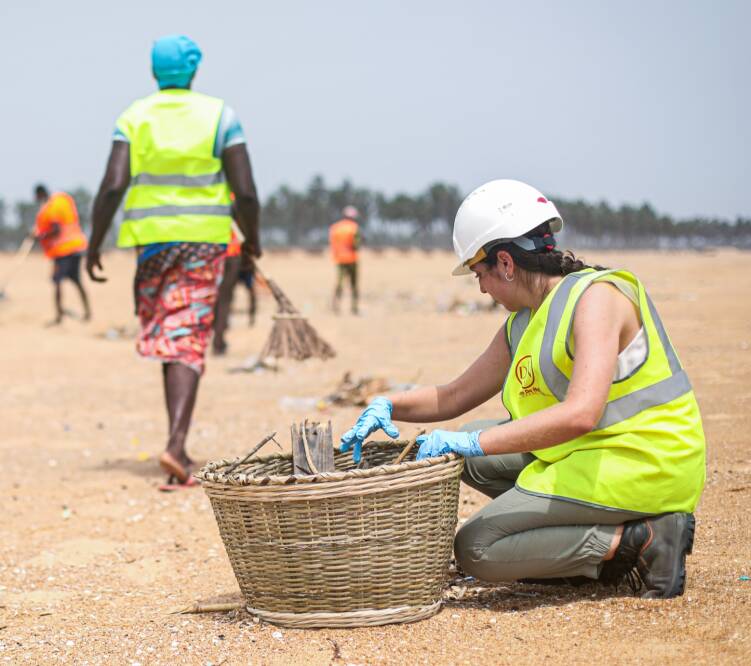
Laurens: “Our team joined forces with the local community, the local employees and the client for a beach cleanup. The message was spread by means of information sessions and some large posters along the road. More than 150 volunteers gathered and cleared no less than 48,000 m² of beach. Good for a total amount of 4.5 tonnes of waste. We used sustainable materials to collect the waste: no plastic bags or waste grippers, but wicker baskets, rakes and shovels. Afterwards, we gave these materials to the local community. They can use them to transport purchases or maintain agricultural gardens.”

Laurens: Climate change affects everyone. With rising sea levels and more powerful storm fronts, we see more and more beaches eroding in different parts of the world. Also in Benin, many inhabitants have been forced to relocate due to the consequences of climate change. A large part of the local population in Avlékété lives right at the beach in houses constructed of natural materials. They make a living from what the ocean brings, mainly by fishing. In our fight against coastal erosion, we also planted new palm trees. These trees prevent further erosion by wind and water of the coastal area, but they also have an economic value: they produce fruits and construction material for the coastal population. Or they can simply serve as a shady place for tourists and fishermen to relax.

PROJECT
INFORMATION

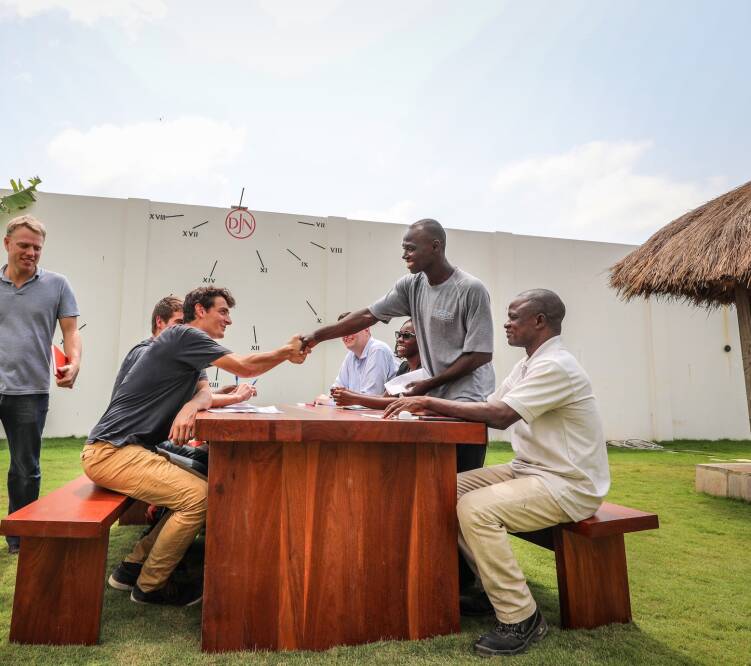
Jan: Jan De Nul Group deploys its own personnel to efficiently put the project organization on the right track. In this setup, the local employees are an indispensable link in the chain. The cooperation and training often require cultural and human knowledge. In most cases, it is a socially enriching experience for all involved. When we arrive on a project site as a team of young and enthusiastic engineers, gaining the trust and respect of local contacts is an interesting process. Cultural differences in the perceived link between age and expertise are often a challenge to overcome. It is not always self-evident that a person in his thirties is considered an expert in his field.


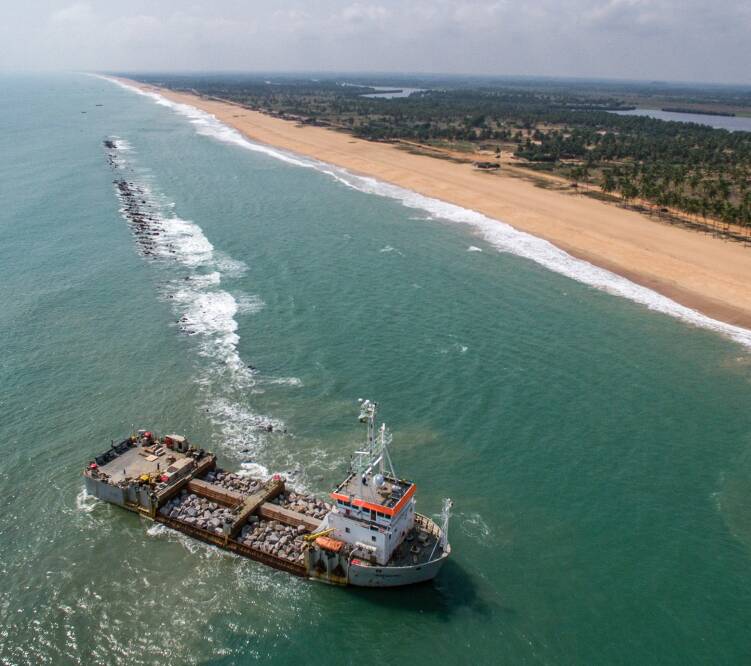
Laurens: “The breakwater not only reduces coastal erosion, it is also a place for additional diversity and a protected zone for fish and other marine organisms. On the rocks of the breakwater that had been in the water for a year, we saw a real diversity of marine life. Species that are normally rare in the region could now thrive in and around the breakwater. We saw moray eels, doctor fish, migratory fish, sea urchins, sea snails... Each has its own important role in the ecology of coral reefs. In the end, we found a clear difference in diversity and quantity of marine life in the area around the breakwater. One local fisherman even claimed that the fish in his nets were larger since the installation of the breakwater.”



GO TO OUR WEBSITE
Discover our corporate social responsibility strategy
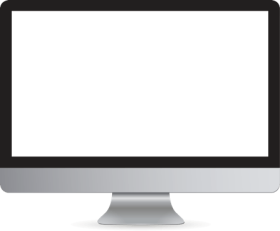
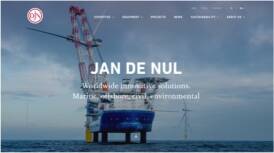
Erosion has plagued the West African coast and its communities for years. Also in Benin, waves from the Atlantic Ocean are eating away at the coastline, up to a few metres a year. To save an important part of the coast of Benin, Jan De Nul Group has developed an innovative solution and is constructing an underwater breakwater. Hand in hand with the works directly benefiting coastal communities, we are taking it much further: we are doing our part by contributing to the fundaments of the local community. Jan De Nul Group stands for honest work and sustainable business operations. To achieve that, we apply the highest corporate standards and show commitment to the local communities wherever we operate.
